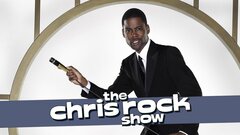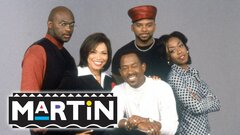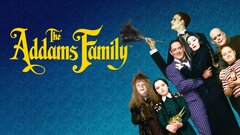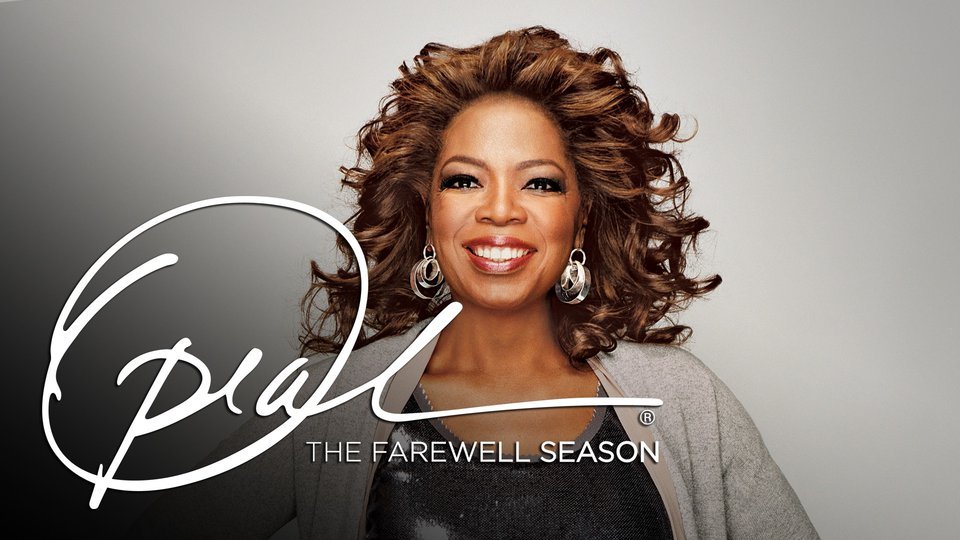From his supercharged performances to his stylish outfits, M.C. Hammer was entertainment personified at the height of his powers. He burst onto the music scene in 1990 with the groundbreaking album Please Hammer Don't Hurt Em, featuring the smash hit single "U Can't Touch This." Considered one of the first "mainstream" rappers, Hammer delivered rap music to a new segment of the population, paving the way for elaborate choreography and showmanship never before seen from any artist of that genre. He even started a new dance craze called the "Hammer Dance." Hammer's sophomore release, Too Legit to Quit(1991), also sold millions.
Hammer bounced back in the 21st century with both a newfound spirituality as well as new ventures like his own reality show "Hammertime" (A&E, 2009) and successful start-ups in the tech arena. His influence in rap music was undeniable, as attested by the popularity of later rappers like Kanye West whose extravagant live shows, flashy footwork, and sampled melodies would not have existed without Hammer's original vision.
He was born Stanley Kirk Burrell on March 30, 1962 in a working-class neighborhood in Oakland, CA. When he was a young boy, Hammer worked as a bat and ball boy for the Oakland Athletics baseball team, where he earned the nickname "Little Hammer" for his resemblance to baseball legend, "Hammerin'" Hank Aaron. He also previewed his talents on the field when, during game breaks, he would dance in front of fans to entertain them. An aspiring baseball player, Hammer once took a shot at a tryout, but he failed to secure a spot with the San Francisco Giants.
After graduating from Castlemont High School in Oakland, he enlisted in the U.S. Navy for three years. After returning to civilian life, Hammer, who was a long-time fan of funk and soul music, began rapping in local clubs. In the mid-1980s, with the financial backing of several Athletics players, Hammer started his own record label, Bust It Productions, which he kept afloat by recording singles and selling them out of the trunk of his car. Billing himself as MC Hammer, he recorded his debut album Feel My Power (1987), which featured the club hits "Let's Get it Started" and "Ring 'Em." In 1988, he signed to a multi-album deal after he impressed a Capital Records executive during a performance at an Oakland club. That same year, he released a revised version of his debut album, Let's Get it Started, which went double-platinum, thanks to the track "Turn This Mutha Out."
Hammer 's career soared after releasing the international hit single, "U Can't Touch This" from his sophomore album Please Hammer Don't Hurt Em (1990), which became one of the world's best-selling rap albums, selling more than 10 million copies in the U.S. alone. Thanks to lyrics such as "Stop Hammer time!" and energetic riffs sampled mostly from Rick James' funk classic "Super Freak" (1981), "U Can't Touch This" dominated the airwaves and MTV in a way few rap singles had. The single earned Hammer multiple Grammys, including Best Rhythm and Blues Song and Best Rap Solo in 1990. With his trademark baggy harem pants, Hammer also spawned the infamous "Hammer Dance," creating a performance style so energetic and flashy that diverse crowds could not help but call back "Go, Hammer! Go Hammer! Go Hammer!"
He was actually one of the first rap artists to put together elaborately choreographed shows involving several dancers, multiple back-up singers, and live musicians. While "U Can't Touch This" was clearly the album's biggest hit, it also spawned the Billboard-topping tracks "Have You Seen Her," a cover of the 1971 soul ballad by the Chi-Lites, and "Pray," with beats that sampled Prince's "When Doves Cry" (1984) as well as Faith No More's 1985 hit "We Care a Lot." The single "Pray" also set a new record for the number of times its title was repeated during the song - well over 100. Following the success of Please Hammer Don't Hurt Em, Hammer embarked on a 250-city tour, landed lucrative endorsement deals with Pepsi, Toshiba, and KFC, and starred on the animated series "Hammerman" (ABC, 1992-92).
In response to a growing backlash over his frequent sampling of classic riffs and repetitive lyrics, as well as criticism from hip-hop purists and hardcore rappers such as Digital Underground, 3rd Bass, and Ice Cube who were against emcees who drop their hardcore rap image to pop-rap for the mainstream, Hammer dropped the "MC" from his name and leaned more on live instrumentation on his 1991 album Too Legit to Quit. Sales of the album were more than three million strong, with the title track coming off as the biggest hit. The song's big-budget music video was laden with pyrotechnics and featured countless celebrities, including athletes Jerry Rice and Deion Sanders and actor James Belushi.
The majority of the songs on the album were "message songs," with Hammer rapping about living a hustler's life ("Living in a World Like This"), about religion ("Do Not Pass Me By"), and peace ("Tell Me: Why Can't We Live Together"). Around this time, Hammer's shows were as lavish as his lifestyle; he reportedly had an entourage of more than 200 people. The "Too Legit" supporting concert tour, which was loaded with singers, dancers, and backup musicians, was even canceled halfway through because it was too expensive for the album's sales to finance.
In 1994, Hammer turned out a harder-edged album The Funky Headhunter that went gold, but it failed to attract a new fan base of hardcore hip-hop fans. He tried to come back with the 1995 album Inside Out, which had tinges of dance, pop, rap, alternative rock and gospel. This album also flopped - mainly because the genre music was so hard to classify. He also dealt with several lawsuits, including one filed by Rick James for infringement of copyright in the early 1990s. But the suit was settled out of court when Hammer agreed to credit James as co-composer of the single, "U Can't Touch This." By 1996, the once multi-millionaire's taste for luxury exceeded his dwindling income; he reportedly had debts totaling at least $10 million and was forced to file for bankruptcy and sell his 11,000-square-feet hilltop mansion at a fraction of its cost.
Hammer's financial downfall seemingly prompted a spiritual reawakening, and he became a preacher in the late 1990s, officiating celebrity weddings from time to time. With new material that focused on family and spirituality, Hammer released Family Affair (1998), which sold considerably less than his previous releases and spawned no hit singles.
While Hammer failed at his attempts to regain his place on the charts, he continued churning out new material well into the 2000s, including DanceJamtheMusic (2009), which had deep soul elements and house style music. In 2003, he appeared on the reality series "The Surreal Life" (The WB, 2003-04; VH1, 2006) which followed the shenanigans of a group of "celebrities" living together in a Los Angeles mansion. In March 2009, Hammer performed with former rival Vanilla Ice at a one-off concert to promote his reality television series "Hammertime" (A&E Television Networks, 2009), based on his real life as a father and his business ventures on social media. During this time, Hammer co-founded DanceJam.com, an exclusive online community where he and other celebrities judged dance video competitions.
In 2010, Hammer had a much-publicized feud with rapper Jay-Z, who took a slight jab at him in a verse on Kanye West's 2010 single "So Appalled," by mocking his financial problems. Hammer retaliated days layer by releasing a track with the accompanying video "Better Run Run," where he lambasted Jay-Z for "selling his soul to the devil." In October 2011, the entrepreneur announced that he was launching a web service called WireDoo, a search engine that would add relationship information to search results.
By Candy Cuenco










































